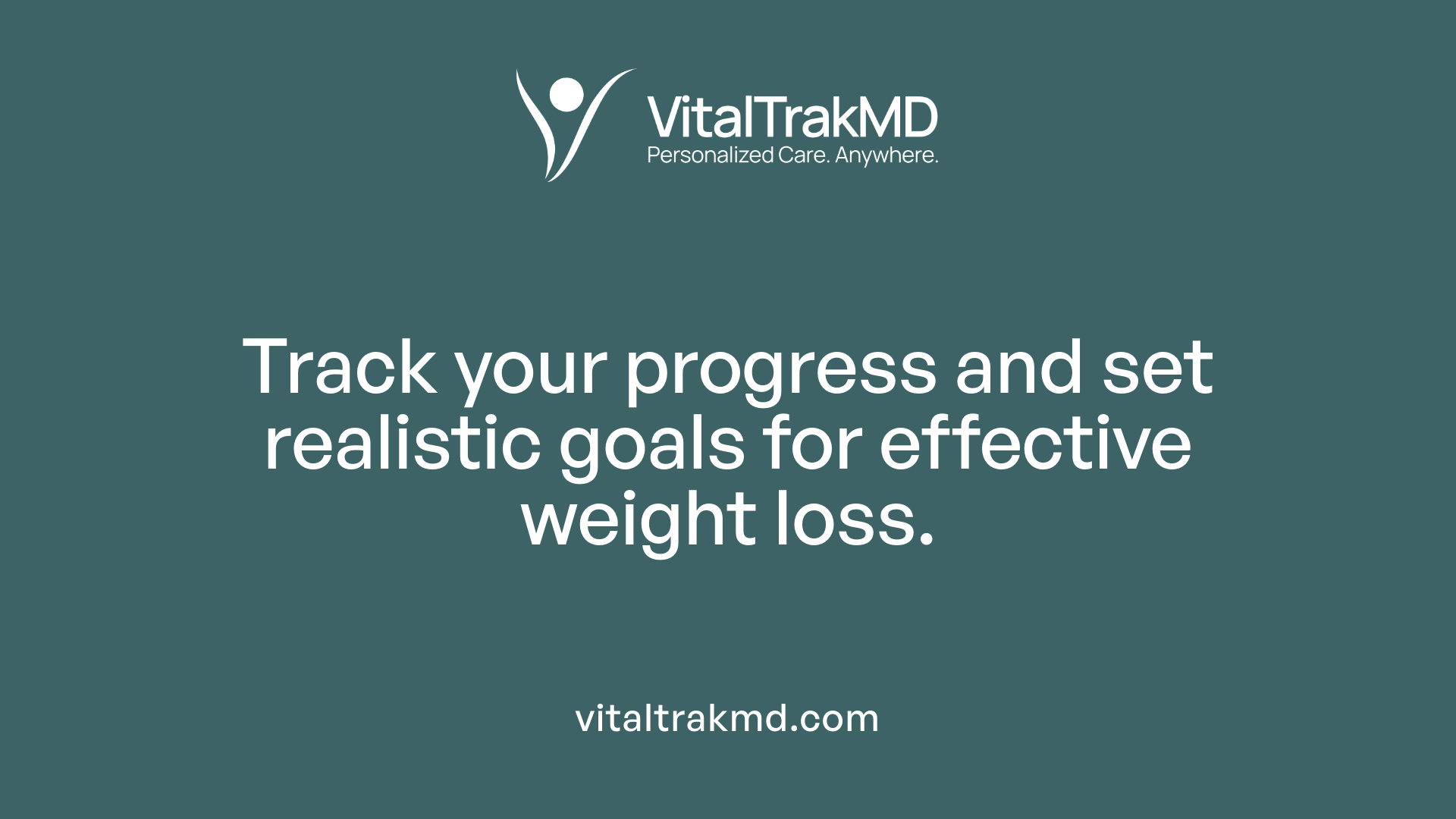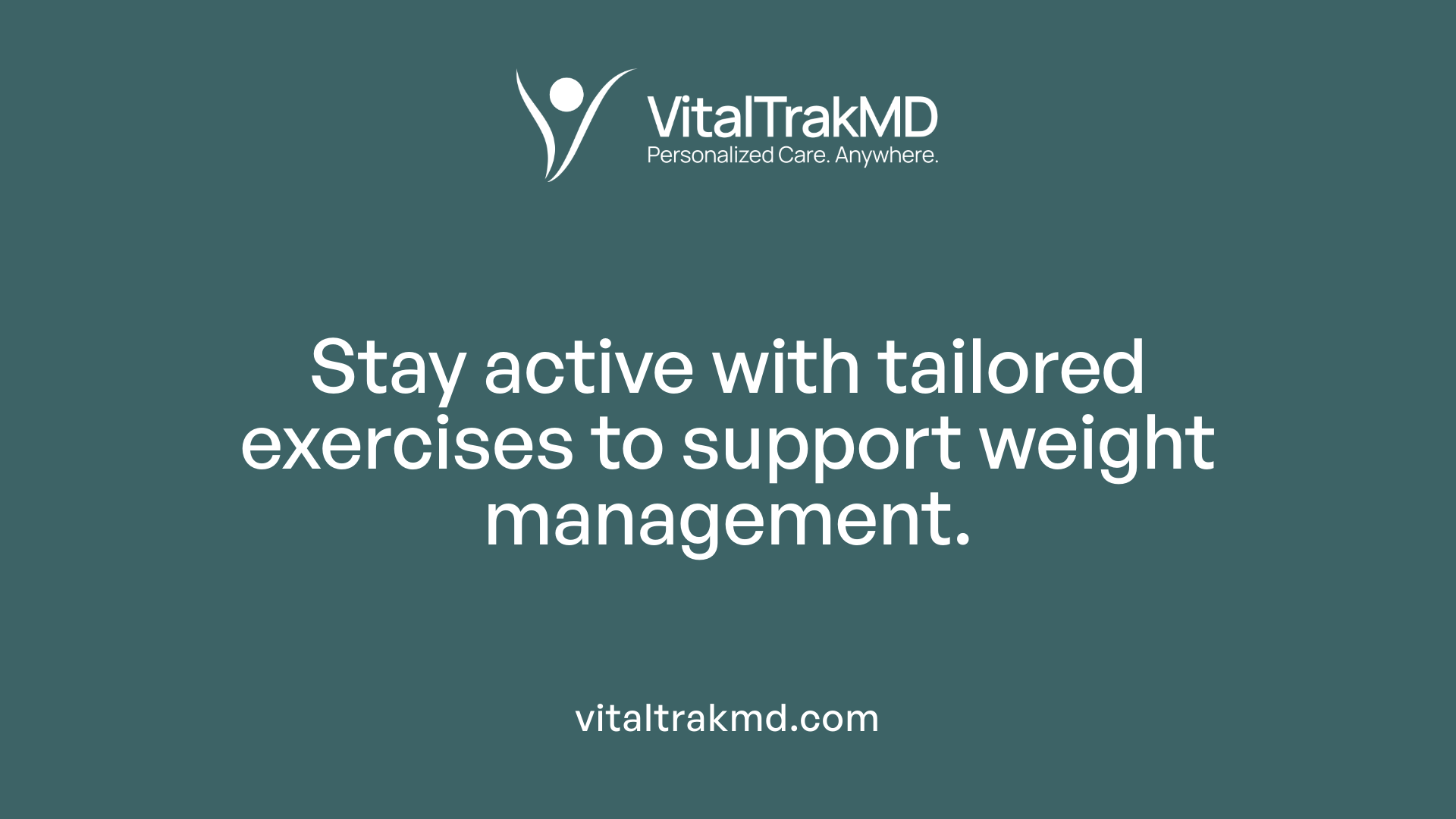How VitalTrak Helped a Senior Lose 20 lbs at Home

A New Era of Senior Wellness Begins at Home
In recent years, advancements in health technology have revolutionized weight management for older adults. Among these innovations, VitalTrak has emerged as a leading platform dedicated to supporting seniors in their journey toward healthier living. Through personalized tracking, tailored nutrition, and integrated physical activity programs, VitalTrak demonstrates that significant weight loss—such as shedding 20 pounds or more—is achievable at home, even amidst age-related challenges. This article explores twenty inspiring weight loss stories and strategies that showcase how VitalTrak empowers seniors to improve their health, boost energy, and enhance overall wellbeing.
VitalTrak and Senior Weight Loss Key Facts
- VitalTrak promotes safe weight loss of 1-2 pounds weekly through gradual and personalized goals.
- The platform emphasizes nutritional habits, physical activity, and lifestyle modifications tailored to seniors' health conditions.
- Increased protein intake supports muscle preservation and enhances satiety during weight loss journeys.
- Engagement in 150 minutes of moderate aerobic exercise and resistance training helps burn calories and maintain muscle mass.
- Strength training two to three times weekly counters age-related muscle decline and boosts metabolism.
- Proper hydration supports metabolism, reduces overeating, and improves energy levels in seniors.
- Monitoring blood pressure and blood sugar levels helps manage health conditions and tailor weight management strategies.
- Seniors should avoid rapid weight loss and fad diets to prevent nutritional deficiencies and muscle loss.
- Setting SMART goals increases motivation, accountability, and long-term success in weight management.
- VitalTrak offers personalized plans with continuous monitoring and support, enabling seniors to achieve significant weight loss safely.
1. Achieving Safe and Steady Weight Loss with VitalTrak
How does VitalTrak promote safe weight loss for seniors?
VitalTrak is designed to support seniors in losing weight safely through a focus on gradual and attainable goals. The platform encourages a weight loss rate of about 1 to 2 pounds per week, which aligns with health professionals' recommendations for sustainable weight management.
To ensure safety, VitalTrak promotes a personalized approach that combines nutritious dietary habits with regular physical activity. It emphasizes the importance of strength training, aerobic exercises, and flexibility routines tailored to individual health conditions. Furthermore, VitalTrak guides seniors in making lifestyle modifications that are manageable and effective, including hydration, balanced nutrition, and tracking progress.
By emphasizing a steady and realistic approach, VitalTrak helps reduce risks associated with rapid weight loss, such as muscle loss or nutritional deficiencies. This method not only promotes physical health but also enhances emotional well-being, making weight management a sustainable part of healthy aging.
2. Personalized Monitoring and Goal Setting
 Tracking progress is crucial for seniors on their weight loss journey. Tools that help monitor weight, activity, and dietary habits keep motivation high and provide a clear picture of progress over time.
Tracking progress is crucial for seniors on their weight loss journey. Tools that help monitor weight, activity, and dietary habits keep motivation high and provide a clear picture of progress over time.
Setting achievable weight loss goals is essential. Gradual targets, like losing 1-2 pounds weekly, are safer and more sustainable than rapid weight loss goals.
VitalTrak assists seniors in tracking their weight management efforts by offering personalized health monitoring tools. These features enable users to record their weight, activity levels, and dietary intake easily. The platform also helps users set realistic, step-by-step goals tailored to their health status, making weight loss more approachable.
With continuous feedback, seniors can adjust their routines as needed, staying motivated while avoiding frustration. Combining tracking with goal setting ensures that weight loss remains manageable and aligned with individual capabilities and health conditions.
For more options, searching "senior weight management tools" can uncover additional resources and devices suited for effective and safe weight management in later years.
3. Implementing Dietary Changes for Effective Weight Loss

Nutritious eating habits
For seniors aiming to lose weight, adopting nutritious eating habits is essential. It involves choosing foods rich in nutrients—such as fruits, vegetables, lean proteins, and healthy fats—while reducing intake of refined carbohydrates and processed foods. Eating small, regular meals throughout the day can help boost metabolism and prevent overeating.
Increasing protein intake
A pivotal strategy is increasing protein consumption, which helps maintain muscle mass, supports metabolism, and promotes feelings of fullness. Foods like wild salmon, eggs, organic whey protein, and grass-fed beef provide high-quality protein that can be spread across meals and snacks.
What dietary strategies does VitalTrak recommend?
VitalTrak emphasizes nutrient-dense diets that incorporate more protein to support muscle health and curb hunger. It encourages reducing refined carbs and practicing mindful eating, such as eating slowly and paying attention to hunger cues, which helps seniors control portion sizes and avoid overeating.
Maintaining these simple but effective dietary habits can make a significant difference in managing weight healthily and sustainably for older adults.
4. The Role of Physical Activity in Senior Weight Loss

What types of physical activity does VitalTrak encourage?
VitalTrak recommends that seniors engage in at least 150 minutes of moderate-intensity aerobic exercise each week. This can include activities like brisk walking, swimming, or cycling, which help burn calories and improve cardiovascular health.
In addition to aerobic activity, strength training is emphasized to preserve muscle mass, which naturally declines with age. Resistance exercises, such as lifting light weights or using resistance bands, are crucial for boosting metabolism and supporting weight loss.
VitalTrak encourages a combination of these activities, including flexibility and balance exercises, to promote overall health, prevent falls, and maintain independence.
Types of exercises suitable for seniors
Seniors should focus on a balanced exercise routine that includes:
- Aerobic activities like walking, swimming, or dancing.
- Strength training involving resistance bands, light weights, or bodyweight exercises.
- Flexibility exercises such as stretching or yoga.
- Balance exercises including tai chi or balance drills.
These exercises not only aid in weight management but also improve mobility and reduce the risk of injury.
| Exercise Type | Frequency | Benefits | Suitable For |
|---|---|---|---|
| Aerobic (Cardio) | 3-5 times per week | Burns calories, boosts heart health | Most seniors, with medical clearance |
| Resistance (Strength) | 2-3 times per week | Preserves muscle mass, boosts metabolism | Seniors in good health, with gradual intensity increase |
| Flexibility & Balance | Daily or 3-5 times/week | Improves mobility, prevents falls | All seniors, especially those with mobility issues |
For those interested in structured programs, searching for 'senior physical activity programs' can provide access to supportive classes and online resources tailored to older adults.
5. Strength Training to Combat Muscle Loss
How does strength training contribute to weight loss in seniors?
As people age, they naturally lose muscle mass, which can slow down metabolism and make weight management more difficult. Incorporating resistance exercises, like weightlifting or body-weight workouts, helps seniors preserve their muscle mass.
Maintaining muscle is essential because it burns more calories at rest compared to fat tissue. Strength training not only supports muscle preservation but also enhances overall strength, balance, and stability, which can reduce fall risk.
Experts recommend doing resistance exercises two to three times each week to achieve optimal benefits. These workouts help seniors burn more calories, support healthy weight loss, and improve quality of life.
By keeping their muscles active with regular strength training, seniors can counteract age-related muscle decline and stay healthier longer.
6. Hydration and Its Impact on Weight Management
What is the importance of hydration in weight loss for seniors?
Adequate hydration is fundamental in supporting weight management, especially as one ages. Drinking enough water helps boost the body's metabolism, enabling more efficient calorie burning. It also increases feelings of fullness, which can prevent overeating and reduce cravings.
For seniors, staying well-hydrated is crucial because dehydration can impair bodily functions and slow down metabolic processes. The recommended intake is around 64 ounces of water daily, but foods like cucumbers, tomatoes, and other water-rich produce can also contribute to hydration.
Keeping properly hydrated supports overall health, assists in digestion, and helps maintain energy levels, making it easier to stay active and stick to a healthy routine.
7. Managing Sugar and Calorie Intake
Controlling sugar and calorie intake is vital for seniors aiming to manage their weight. Reducing added sugars and processed foods not only helps prevent excess calorie consumption but also decreases the risk of abdominal fat accumulation.
Limiting empty calories—those from sugary drinks, desserts, and junk food—ensures that calories come from nourishing, nutrient-rich foods. This strategy supports overall health while making weight loss more attainable.
Reducing sugar and refined carbohydrate intake helps prevent abdominal fat accumulation and manages hunger, making it easier for seniors to create a caloric deficit essential for weight loss.
By focusing on healthier choices, seniors can improve energy levels and reduce health risks associated with excess weight.
8. The Importance of Adequate Sleep in Weight Control

Why is sleep important for senior weight loss?
Getting enough sleep plays a crucial role in maintaining a healthy weight, especially for older adults. Proper sleep helps regulate hunger hormones such as ghrelin and leptin, which control feelings of hunger and fullness. When seniors don't get sufficient rest, these hormones can become unbalanced, leading to increased appetite and cravings.
Moreover, sleep influences the body's metabolism. An adequate amount of rest allows the body to efficiently process nutrients and burn calories. Lack of sleep not only causes metabolic slowdown but also contributes to greater food intake, increasing the risk of weight gain.
Solutions like VitalTrak emphasize the importance of establishing good sleep habits, such as maintaining a consistent bedtime, creating a relaxing sleep environment, and avoiding screens before sleep. These practices support better sleep quality, making it easier for seniors to manage their weight effectively.
Sleep and metabolism
For seniors, metabolism naturally declines with age, and poor sleep can exacerbate this slowdown. Sleep deprivation impairs glucose metabolism and alters appetite-regulating hormones, leading to increased hunger and calorie consumption. Over time, these effects can contribute to accumulation of visceral fat and other health risks.
Sleep deprivation risks
Chronic lack of sleep is linked to numerous health problems beyond weight gain. It raises the risk of heart disease, increases inflammation, and can impair immune function. Sleep deprivation also affects mood and cognitive function, further complicating efforts to maintain a healthy lifestyle.
In summary, prioritizing good sleep hygiene not only improves overall well-being but also significantly supports weight management efforts in older adults. Aiming for at least 7-8 hours of quality sleep each night can make a meaningful difference in health outcomes.
| Aspect | Effect | Additional Details |
|---|---|---|
| Sleep & Hunger | Regulates hormones | Ghrelin (hunger hormone) decreases, leptin (fullness hormone) increases |
| Sleep & Metabolism | Enhances calorie burning | Better nutrient processing and energy use |
| Risks of Sleep Deprivation | Increased health risks | Heart issues, inflammation, cognitive decline |
| Tips for Better Sleep | Healthy habits | Consistent schedule, relaxing environment, limit screen time |
9. Mindful Eating and Portion Control
How can seniors benefit from mindful eating?
Practicing mindful eating helps seniors become more aware of hunger and fullness cues, reducing overeating and supporting weight management by encouraging smaller, more controlled portions.
Controlling meal sizes
Controlling meal sizes is crucial for weight management as people age. Smaller, balanced meals distributed throughout the day can prevent overeating and keep metabolism active. Eating slowly and savoring each bite allows seniors to better recognize when they are satisfied.
Tips for effective portion control
- Use smaller plates and bowls to naturally limit portion sizes.
- Avoid eating directly from packages; instead, serve portions on a plate.
- Aim for balanced meals that include lean proteins, vegetables, and healthy fats.
- Practice mindful eating by focusing on food without distractions like TV or smartphones.
By paying close attention to hunger cues and controlling portions, seniors can maintain a healthier weight, enhance digestion, and improve overall well-being.
10. Incorporating Functional Fitness and Balance Exercises
What role do balance exercises play in weight and health management?
Balance and flexibility exercises are essential components of physical activity for older adults. They help improve mobility and coordination, which are crucial for maintaining independence.
Practicing balance exercises can significantly reduce the risk of falls, a common concern among seniors. Falls often lead to injuries, loss of confidence, and decreased activity levels, which can further impact weight management.
Incorporating simple activities like standing on one leg, heel-to-toe walks, and gentle yoga can enhance stability. These exercises support sustained physical activity by making daily movements safer and easier.
Overall, improving balance not only benefits health by reducing the likelihood of falls but also encourages regular movement, contributing to healthier weight levels and a more active lifestyle.
11. Leveraging Community Support for Weight Loss
Social engagement plays a crucial role in helping seniors succeed in weight management. Participating in community programs provides motivation, accountability, and encouragement, making healthy lifestyle changes more sustainable.
Programs like SilverSneakers offer classes and online resources tailored specifically for older adults. These initiatives foster a sense of belonging, which can boost efforts to stay active and adhere to healthy habits.
Community programs enhance weight loss by creating social connections, promoting consistency in exercise routines, and providing support from peers facing similar challenges.
How do community programs enhance weight loss for seniors? Community support, like SilverSneakers classes and online programs, motivates seniors through social interaction, accountability, and shared goals, making weight loss efforts more enjoyable and sustainable.
Incorporating participation in these programs can significantly increase the likelihood of staying committed to healthy behaviors, ultimately contributing to improved health and well-being.
12. Using Medication and Medical Supervision Safely
What precautions should be taken when using weight loss meds in seniors?
For seniors considering weight loss medications, such as GLP-1 receptor agonists, it is crucial to do so under strict medical supervision. Healthcare providers can monitor for potential side effects and ensure the medication is appropriate for the individual’s health status.
VitalTrak emphasizes the importance of medical oversight when using these drugs. Regular check-ups are necessary to track progress and address any adverse reactions early. This cautious approach helps maximize benefits while minimizing risks.
Monitoring side effects is a vital part of safe medication use. Seniors should report any unusual symptoms, such as gastrointestinal discomfort, changes in blood sugar levels, or other health issues, to their doctors promptly.
Using medication as part of a comprehensive weight management plan—including diet, exercise, and behavioral changes—yields the best outcomes. Always consult qualified healthcare professionals before starting any pharmacological treatment.
To learn more about the safety of weight loss medications for seniors, search for "weight loss medication safety seniors." This helps ensure the information is tailored to their specific health needs and risks.
13. Tracking Blood Pressure and Blood Sugar Levels
How does health monitoring aid weight loss in seniors?
Monitoring blood pressure and blood sugar levels plays a crucial role in assisting seniors with weight loss journey. This regular check helps manage underlying health issues such as hypertension and diabetes, which are common in older adults. By keeping these indicators within healthy ranges, seniors can prevent complications and tailor their weight management strategies more effectively.
Tracking these health indicators allows healthcare providers to recommend personalized diet and exercise plans. For instance, if blood sugar levels are high, reducing refined carbs and including more protein-rich foods can improve control. Similarly, managing blood pressure supports safer physical activity programs, reducing the risk of dizziness or injury.
Supporting overall health through active monitoring ensures that weight loss efforts do not compromise other vital functions. It fosters a safe and sustainable approach, integrating medical needs with lifestyle changes for better health outcomes.
14. Avoiding Rapid Weight Loss and Fad Diets
Why should seniors avoid rapid weight loss methods?
Rapid weight loss can pose serious health risks for older adults. It often leads to muscle loss, which is particularly problematic as muscle mass naturally declines with age. Losing muscle can slow down metabolism further, making weight management even harder. Additionally, very low-calorie diets can cause nutritional deficiencies, weakening the immune system and impairing overall health.
Health professionals, including VitalTrak, emphasize the importance of gradual, sustainable weight loss. This approach helps preserve muscle and ensures nutritional needs are met, leading to better long-term health outcomes.
Sustainable weight management
Instead of quick fixes, achieving weight loss through steady lifestyle changes is more effective and safe. Techniques like balanced diets rich in fruits, vegetables, lean proteins, and healthy fats, combined with regular physical activity, support lasting results.
Adopting such habits not only reduces the risk of nutritional deficiencies but also promotes emotional and physical well-being. Seniors should consult healthcare providers before starting any weight loss program to tailor strategies that suit their individual health conditions.
Fad diets can often be restrictive and unsustainable, increasing the likelihood of weight regain. For long-term success, focus on consistent, moderate changes that promote overall health.
15. Setting SMART Goals for Weight Loss Success
How does goal setting contribute to weight loss in seniors?
Establishing clear, realistic goals using the SMART framework—Specific, Measurable, Attainable, Relevant, and Time-bound—significantly enhances the chances of successful weight management for older adults.
When seniors set specific goals, they know exactly what they want to achieve, such as losing a certain number of pounds or increasing physical activity levels. Making these goals measurable allows tracking progress, providing motivation and a sense of achievement along the way.
Goals that are attainable ensure that seniors don't set themselves up for frustration or disappointment. Reaching small milestones builds confidence, especially when dealing with age-related physical or health challenges.
Relevance aligns with the individual's health needs and lifestyle, ensuring that efforts contribute meaningfully to overall well-being. Lastly, setting a clear timeframe creates a sense of urgency, helping seniors stay committed and focused.
This structured approach not only clarifies what needs to be done but also promotes consistency, accountability, and motivation. As a result, seniors are more likely to stay engaged with their weight loss journey, which is crucial given the physical and health-related hurdles they may face.
Summary of SMART goal benefits for seniors:
| Aspect | Benefit | Explanation |
|---|---|---|
| Specific | Clear direction | Avoids confusion, focuses efforts |
| Measurable | Tracks progress | Keeps motivation high |
| Attainable | Realistic targets | Prevents discouragement |
| Relevant | Aligns with health goals | Ensures meaningful progress |
| Time-bound | Deadline for achievement | Maintains momentum |
Incorporating SMART goals into their routine helps seniors develop a manageable, effective, and motivating plan for long-term health and weight management.
16. Nutrition Support Services and Meal Planning
Support services such as healthy meal delivery programs and grocery shopping assistance play a significant role in helping seniors maintain a nutritious diet. These services cater to seniors who may face difficulties with cooking, mobility, or shopping, ensuring they have access to balanced and nutrient-rich foods.
Healthy meal services often offer pre-portioned, calorie-controlled meals that focus on high protein, fiber, and healthy fats, which support muscle maintenance and overall health. Grocery assistance programs help seniors select nutrient-dense foods, making it easier to avoid unhealthy options that contribute to weight gain.
By reducing the stress and effort involved in meal planning and shopping, these services enable older adults to stick to their dietary goals more effectively. Proper nutrition combined with physical activity is essential for successful weight management in seniors.
How do support services aid senior weight loss?
Healthy meal delivery and grocery assistance help seniors maintain nutritious diets, especially when cooking or shopping becomes challenging, ensuring their dietary goals are sustained.
| Service Type | Benefits | Additional Notes |
|---|---|---|
| Meal Delivery | Convenient, portion-controlled, focused on nutrition | Often includes options tailored for specific health needs |
| Grocery Assistance | Helps select healthy foods, reduces decision fatigue | Can include guided shopping lists and delivery |
Staying informed about available senior-focused meal support services can significantly improve adherence to healthy eating habits, ultimately aiding weight loss and promoting well-being.
17. Long-term Lifestyle Changes for Continued Success

What strategies promote lasting weight management in seniors?
Maintaining a healthy weight after age 60 involves more than just temporary diet fixes. Successful long-term management relies on consistent habits that become a natural part of daily life.
Gradual and realistic lifestyle changes are crucial. For example, seniors should focus on increasing physical activity, especially resistance training, to counteract muscle loss and boost metabolism. Incorporating activities like walking, swimming, or strength exercises about two to three times a week helps maintain muscle mass and burn calories.
Eating nutritious foods predominantly rich in proteins, fruits, vegetables, and healthy fats supports overall health and helps sustain weight loss. Spreading protein intake throughout the day can promote fullness and muscle preservation.
Staying socially connected and setting specific goals give seniors motivation and help make healthy habits stick. Regular check-ins with healthcare professionals ensure adjustments can be made safely and effectively.
Finally, healthy lifestyle habits such as staying well-hydrated, practicing mindful eating, managing stress, and getting enough sleep all contribute to successful, long-term weight management.
These strategies, combined with ongoing support and lifestyle adaptation, can help seniors enjoy better health and quality of life.
| Strategy | Implementation Tips | Additional Notes |
|---|---|---|
| Gradual Changes | Introduce one new habit every few weeks | Reduces overwhelm and increases sustainability |
| Physical Activity | Mix aerobic, strength, and flexibility exercises | Supports muscle mass and calorie burn |
| Nutritious Diet | Focus on protein, fiber, and limiting refined carbs | Promotes fullness and stabilizes blood sugar |
| Social Engagement | Join classes or activity groups for motivation | Enhances mental health and commitment |
| Healthcare Support | Regular medical check-ups | Ensures safe progress and diet adjustments |
Adopting these practices creates a supportive environment for seniors to manage weight effectively and improve overall well-being.
18. The Psychological Benefits of Weight Loss
Losing weight in older age offers more than just physical health improvements; it can also significantly enhance mental well-being.
Reduced weight often leads to a better mood, increased confidence, and overall happiness. Seniors who shed excess pounds frequently report feeling more energetic and positive about their lives.
This boost in self-esteem can help combat feelings of depression and anxiety, common concerns for many aging adults. Engaging in physical activity and seeing progress can foster a greater sense of accomplishment, improving mental health.
In addition, improved confidence can motivate seniors to participate more actively in social activities, further supporting emotional wellness.
Research indicates that the mental health benefits of weight loss include not only improved mood but also a more optimistic outlook on life, helping older adults enjoy a higher quality of life.
19. Role of Hydration in Supporting Exercise and Weight Loss
Proper hydration is vital for seniors aiming to maintain a healthy weight and stay active. Drinking enough water supports physical performance by preventing fatigue and muscle cramps. It also boosts metabolism, helping the body burn calories more efficiently.
Staying well-hydrated can help control hunger, making it easier to avoid unnecessary snacking. Drinking water before meals may increase feelings of fullness, aiding portion control.
Some practical tips for staying hydrated include drinking about 64 ounces of water daily and incorporating water-rich foods such as cucumbers and tomatoes. It's helpful to have a water bottle nearby and to sip fluids regularly throughout the day, especially during and after exercise.
20. Celebrating Health Achievements at Home
Tracking progress is an essential part of staying motivated during weight loss. Seniors can use tools like VitalTrak to monitor weight changes, physical activity, and healthy habits. This helps them see their improvements over time and stay committed.
Rewarding milestones can boost morale and encourage continued efforts. Seniors might choose activities like a relaxing massage, a new book, or a favorite healthy treat. Recognizing their achievements helps reinforce positive behavior.
Celebrating health successes doesn’t require grand gestures. Simple at-home celebrations or sharing accomplishments with friends and family can create a sense of pride. Maintaining motivation is easier when progressing towards personal health goals.
Looking for more ideas? Searching for "senior weight loss celebration ideas" can provide creative ways to recognize and enjoy health milestones in a fun, supportive manner.
How VitalTrak helps seniors achieve weight loss goals of 20 pounds or more.
How does VitalTrak help seniors achieve weight loss goals of 20 pounds or more?
VitalTrak is designed to support seniors in their journey to lose significant weight safely and effectively. It offers personalized plans that focus on caloric management, ensuring participants create a healthy caloric deficit through tailored diet and exercise routines. Elevated protein intake, which is crucial for maintaining muscle mass as metabolism slows, is incorporated into these plans.
The program emphasizes regular physical activity, including strength training to combat muscle loss and boost calorie burn, complemented by aerobic exercises to enhance cardiovascular health. To keep seniors motivated and on track, VitalTrak provides continuous monitoring features and support systems. These include tracking progress, providing feedback, and offering encouragement, all personalized to suit each individual's health conditions and lifestyle.
By combining these elements—diet, exercise, monitoring, and support—VitalTrak helps seniors safely achieve and sustain weight loss of 20 pounds or more. Its comprehensive approach ensures that weight loss is gradual, realistic, and aligned with overall health and well-being.
| Feature | Description | Benefits |
|---|---|---|
| Personalized plans | Tailored diet and exercise routines based on individual health profiles | Safer, more effective weight loss |
| Monitoring & support | Continuous tracking of progress with ongoing encouragement | Increased motivation and accountability |
| Nutritional focus | Emphasis on adequate protein and nutrient-rich foods | Preservation of muscle mass, better metabolism |
| Physical activity guidance | Combining strength, flexibility, and cardio training | Improved overall health, sustained weight loss |
This holistic approach by VitalTrak aims to empower seniors by making their weight loss journey manageable, safe, and sustainable, leading to improved energy, health, and quality of life.
Empowering Seniors for a Healthier Future
The journey toward losing 20 pounds or more at home can be challenging, but with tools like VitalTrak, seniors are given a tailored roadmap that combines monitoring, dietary guidance, and physical activity. These strategies not only foster effective weight loss but also promote overall health improvements, increased energy, and happiness. As more seniors embrace these technological innovations and lifestyle changes, they unlock the potential for a healthier, more active, and fulfilling life well into their golden years.
References
- Weight Loss Basics for Older Adults
- Losing Weight After 50: Top 20 Expert Tips
- How to Lose 20 Pounds as Fast as Possible
- Dieting After 60: What You Need to Know
- Weight Loss For Seniors: Tips and Best Practices
- Losing Weight after 60 | Care Designed with Seniors in Mind
- Weight management
- Weight Loss Medications for Older Adults
- Weight Loss Programs for Older Adults
Recent articles
Want to Feel Better and Live Healthier?
Join hundreds of patients taking control of their health with personalized care that fits their life – not the other way around.
Rated 4.8/5 by 32+ customers







